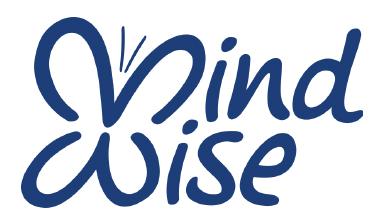Mental Health: The Hidden Struggles of Homelessness
Mental HealthHomelessness is not just about a lack of shelter. It is a deeply personal crisis that affects physical health, mental well-being, and a person’s sense of stability and dignity. In Northern Ireland, the rising cost of living, stagnating wages, and an escalating housing shortage are pushing families and individuals into homelessness at alarming rates.
Together, we can work to break the cycle of homelessness and mental health struggles, ensuring everyone in our society has a chance to thrive.
Rising Costs, Shrinking Options
A Perfect Storm for Crisis
Northern Ireland is grappling with unprecedented financial pressures. Costs for essential goods and services—food, energy, and transport—have soared due to inflation. Coupled with stagnant wages that fail to keep pace, working-class families are being pushed to their financial limits.
For many, this crisis hits hardest in the housing market. Private rents in Northern Ireland have surged by 10.1% over the past year, the highest increase in nearly a decade (ONS, 2024). With the average rent now far exceeding what many can afford, more and more people face the stark reality of eviction. Unlike social housing, private rentals often lack long-term security, leaving tenants vulnerable and at the mercy of private landlords.
The Social Housing Shortfall
While private housing development continues, social housing construction remains critically insufficient. In the third quarter of 2024, just 501 social homes were built, while thousands remain on waiting lists (Business Eye, 2024). The lack of affordable housing forces families into overcrowded conditions or, worse, onto the streets.
Wages and Debt Are Tipping Families Over
The financial strain extends to those already in social housing. Rising costs mean many tenants are falling into arrears, unable to keep up with rent. For working-class individuals, even full-time employment is no longer a guaranteed safeguard. With wages failing to match inflation, the risk of homelessness is no longer confined to the unemployed—it is now a looming threat for those doing everything they can to make ends meet.
The Emotional and Mental Toll of Homelessness
Homelessness is more than a housing problem—it is a health crisis.
Mental Health Declines Without Stability
The experience of homelessness strips away stability and security, exacerbating mental health struggles. In Northern Ireland, 70% of homeless individuals report being diagnosed with mental health conditions, including anxiety, depression, and PTSD (Mental Health UK, 2023). The trauma of losing one’s home, combined with the stigma and isolation that often accompany homelessness, creates immense psychological strain.
A Two-Way Relationship
Mental health challenges can both result from and lead to homelessness. People experiencing conditions like depression or schizophrenia may struggle to maintain employment or relationships, eventually losing access to stable housing. Once homeless, accessing mental health services becomes even harder, locking individuals into a vicious cycle.
Hidden Homelessness: The Crisis We Don’t See
When most people think of homelessness, they envision rough sleepers. But in Northern Ireland, much of the crisis is invisible.
What Is Hidden Homelessness?
Hidden homelessness refers to those who lack stable housing but are not visibly on the streets. This includes people "sofa surfing," staying in overcrowded homes, or living in unsuitable conditions, such as sleeping in their car. Such individuals often don’t appear in official statistics, making it harder to fully understand the scope of the issue.
The Mental Health Impact of Living in Limbo
Hidden homelessness, while less visible, is no less devastating. Constantly moving between temporary accommodations or living in unsafe conditions contributes to heightened anxiety, stress, and depression. Women fleeing domestic violence and young people are particularly affected, often fearing further instability or harm if their housing situation becomes known.
The Impact on Children
Homelessness has a profound impact on children, affecting their education, development, and overall well-being. In Northern Ireland, over 4,500 children are currently experiencing homelessness (Homeless Connect, 2023). These children face significant challenges, including:
- Educational Disruptions: Frequent moves and unstable living conditions can lead to missed school days and difficulty concentrating, impacting academic performance.
- Developmental Challenges: The stress and instability of homelessness can hinder emotional and social development, leading to long-term effects on mental health.
- Health Issues: Homeless children are at higher risk for health problems due to inadequate nutrition, lack of access to healthcare, and exposure to unsafe environments.
Care Leavers and Vulnerable Groups at Risk
Care Leavers
Care leavers are particularly vulnerable to homelessness. In Northern Ireland, 1,625 young people were subject to the Care Leaving Act as of March 2022 (DoH, 2022). Many care leavers face significant challenges, including low educational achievements and limited employment opportunities, which increase their risk of homelessness.
- Statistics: At the age of 19, 26% of care leavers were living independently, while 25% were in a GEM (Going the Extra Mile) arrangement.
- Support Needs: Care leavers often require ongoing support to transition successfully into independent living, including access to stable housing and mental health services.
Other Vulnerable Groups
Other groups at heightened risk of homelessness include:
- Women Fleeing Domestic Violence: Women escaping abusive relationships often face immediate housing crises and require safe, supportive accommodations.
- Young People: Youth homelessness is a growing concern, with many young people facing unstable family environments or aging out of foster care without adequate support.
- People with Disabilities: Individuals with physical or mental disabilities may struggle to find accessible housing and appropriate support services.
Why Does Northern Ireland Face a Housing Shortage?
Northern Ireland’s housing crisis is rooted in systemic challenges, including underfunding, infrastructure delays, and rising costs.
Declining New Housing Completions
In 2024, housing completions dropped drastically, with 2,778 homes completed in the first three quarters, compared to 5,373 in the same period in 2023 (Business Eye, 2024). This decline is due to funding gaps, material shortages, and a sluggish planning approval process.
Infrastructure Deficits
A lack of investment in water and sewage systems in high-demand areas, such as Belfast, has further stalled housing development. Without adequate infrastructure, even approved housing projects struggle to proceed.
Breaking the Cycle of Homelessness and Mental Health Struggles
Homelessness and mental health are deeply intertwined. Addressing one requires tackling the other head-on through coordinated efforts from government, communities, and organizations like ours.
Expand Affordable Housing
Northern Ireland urgently needs more affordable and social housing. By prioritizing funding for infrastructure and streamlining planning processes, we can meet the needs of families and individuals waiting for stable homes.
Support Social Housing Tenants
Providing support for tenants in arrears—through flexible payment plans or rent freezes—can help prevent evictions. Expanding rent support programs can also reduce the burden on struggling families.
Improve Mental Health Services
Accessible, trauma-informed mental health care is essential for breaking the cycle of homelessness. Services must be integrated with housing support, ensuring individuals receive comprehensive help without long delays.
Community Action
As a community, we all have a role to play. Whether it’s through donating, volunteering, or advocating for systemic change, we can work together to create a society where homelessness is not inevitable.
Conclusion
Homelessness in Northern Ireland is a systemic failure, not an individual one. Rising rents, stagnant wages, and inadequate housing supply have created conditions that push even working families to the edge. At the same time, mental health challenges both contribute to and result from homelessness, creating a cycle that can feel impossible to escape.
At MindWise, we are committed to breaking the cycle and advocating for a society where everyone has a safe and secure place to call home. But we can’t do it alone.
Whether you donate, volunteer, or simply share this message, you’re part of the solution. Together, we can build a future where homelessness and mental health struggles are addressed with the compassion and urgency they deserve.











































































































